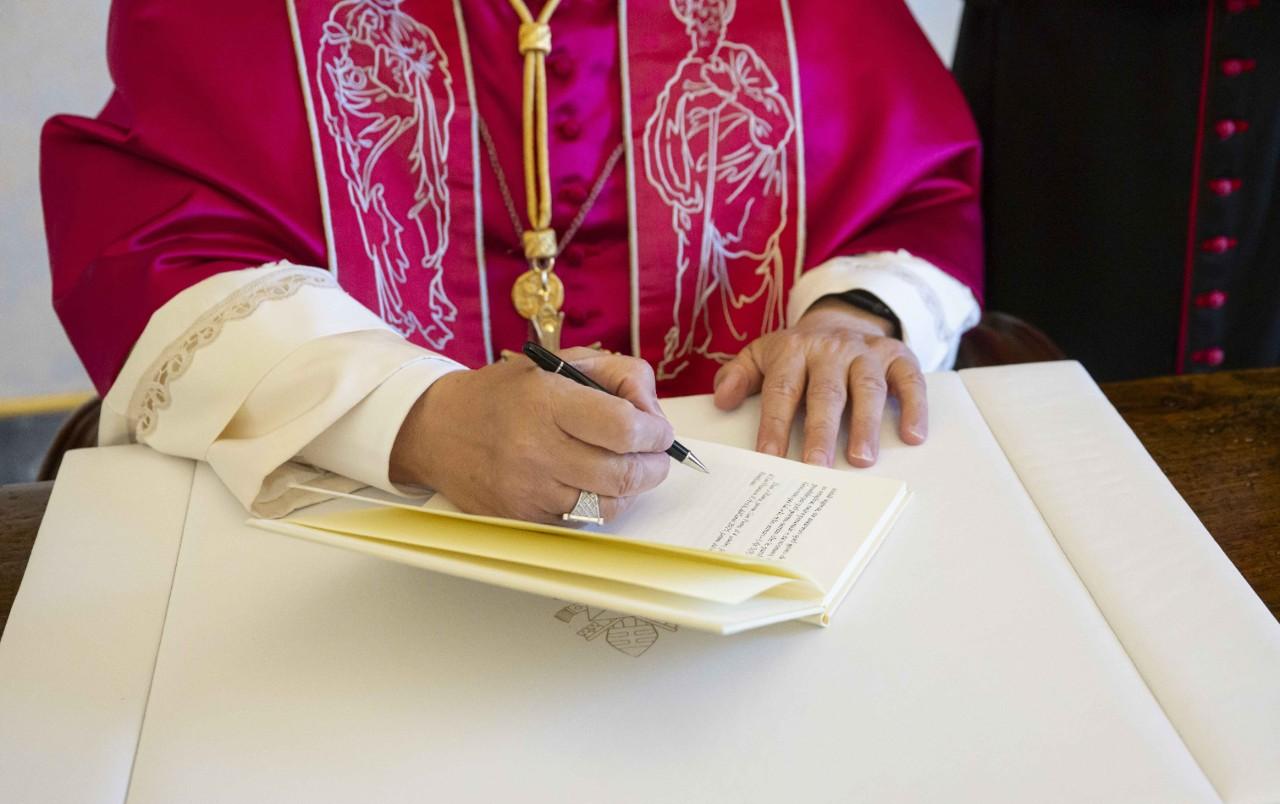Pope Leo XIV released the first major document of his young pontificate on Thursday, in which he called upon all the Christian faithful – especially Catholics – to “make their voices heard,” in decrying the sinful structures that contribute to poverty and make life for the poor even more miserable than it already is.
Signed in the Vatican on October 4, Dilexi te is formally known as an Apostolic Exhortation, begun by Pope Francis and dedicated to the broad subject of Christian duty to care for the poor.
Apostolic Exhortations are a sort of official encouragement to the whole Church and all the faithful of every state of life, laity, religious, and clergy.
Dilexi te touches on a host of issues ranging from systemic inequality to the perverse dominance of economic over human considerations in public counsels and private decision-making, the right to education, the rights of migrants, and ways and means of combatting the “throwaway culture” – a major theme of the Francis pontificate – in an age of increasing indifference to great questions of human nature and human dignity.
Pope Leo XIV wrote in his introductory paragraphs that he is “happy to make this document [his] own,” while “adding some reflections,” and issuing Dilexi te “at the beginning of [his] own pontificate.”
“I share the desire of my beloved predecessor that all Christians come to appreciate the close connection between Christ’s love and his summons to care for the poor,” Leo also wrote.
The prefect of the Holy See’s Dicastery for Promoting Integral Human Development, Cardinal Michael Czerny SJ, spoke to journalists in the Vatican press office on Thursday to present the new document.
In his remarks, Czerny tied the theme of care for the poor to that of peace, which has been a focus of Pope Leo XIV’s pontificate from the very start.
“In Dilexi te,” Czerny said, “Pope Leo joins Pope Francis in declaring: there will be no peace as long as the poor and the planet are neglected and mistreated.”
“Christian peace is reconciling and reconciled justice,” Czerny also said. Quoting St. Teresa of Calcutta, Czerny said the poor, “do not need our pity, but our respectful love.”
“Treating the poor with dignity is the first act of peace,” Czerny said. “Only a society that places the marginalized at its center can be truly peaceful,” he said, “and only a world composed of such societies can be at peace.”
The publication of Dilexi te comes as the US federal government is shut down, with congressional lawmakers and US President Donald Trump so far unable to reach agreement on unfreezing government spending.
The sticking point, lawmakers on both sides and analysts across the spectrum of opinion agree, appears to be twofold: an extension of tax credits that lower the cost of health insurance for millions of Americans; and a reversal of Trump’s cuts to the government healthcare program, Medicaid, which is the primary – sometimes the only – healthcare option for millions of people, many of them disabled, elderly, and people with low income.
Also on Thursday, Trump’s deployment of out-of-state National Guard Troops in the Chicago area – Pope Leo XIV’s native city – was set to face a challenge in federal court, after guardsmen from the US state of Texas arrived with orders to defend an Immigration and Customs Enforcement processing center in the area. The Trump administration’s enforcement of immigration policy has triggered protests throughout the United States.
Asked by reporters about the development earlier this week, Leo declined to comment.
The next day, Leo received the outgoing chairman of the US Conference of Catholic Bishops’ Committee on Migration, Bishop Mark J. Seitz of El Paso, TX – a city on the US-Mexico – and voiced his strong support for efforts on behalf of migrants.











